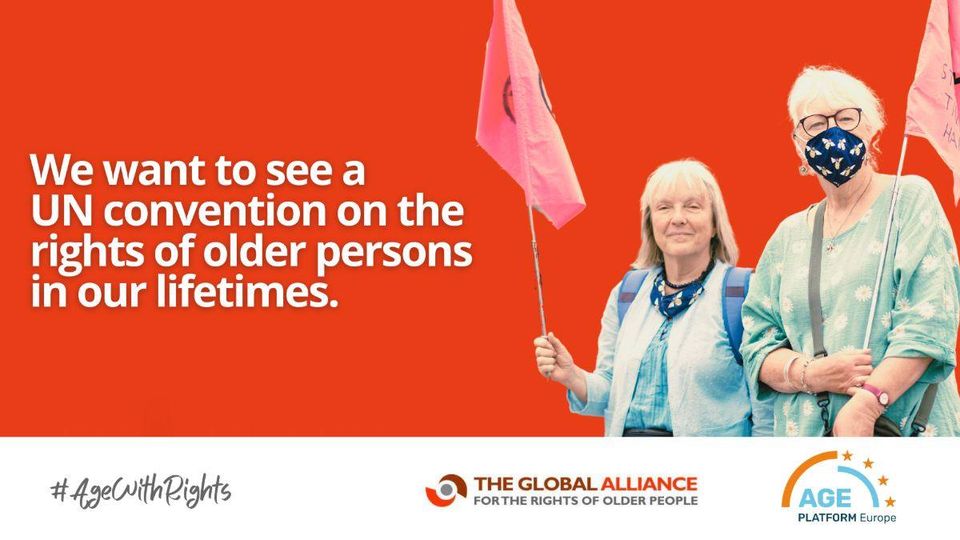
In the run-up to the 14th session of the United Nations’ Open-Ended Working Group on Ageing on 20-24 May in New-York, we actively prepared the ground to make the most of this key global event for the rights of older people.
Global mobilisation for a UN Convention
From 8th-14th April 2024, we participated in the Global Rally, a key initiative of the #AgeWithRights campaign for the drafting of a UN convention on the rights of older people organized by the Global Alliance for the Rights of Older People (GAROP). As a founding member of the Global Alliance, AGE and its members joined their forces to older people’ human rights defenders around the world to call on governments to take concrete actions ahead of the upcoming UN Open-Ended Working Group (OEWG).
We participated in the campaign bringing the voices of some of our members on social media, arguing for the need for a new UN convention for older people to have equal access to health, education, work, financial security and adequate standard of living.
AGE’s written contribution to the OEWG14
In addition to the Global Rally, we contributed to the OEWG call for written submissions on two new focus areas “Participation to public life and decision-making processes” and “Accessibility, infrastructure and habitat”. We also submitted our views on the normative content of the rights to “Social Inclusion” and “Health and Access to Health Services”, which could be included in a new UN Convention.
Our contribution on the right to participate in public life and decision-making processes aims at highlighting the major shortcomings of laws or regulations, which devalue older people’s contribution to society and exclude them from decision-making processes and public life.
In our response on accessibility, infrastructure and housing, we recall key barriers such as ageism, geographical divide, poverty, social exclusion and digitalisation of essential services, which prevent older people from accessing essential services such as healthcare, cultural activities and transport, and from remaining independent.
In our contribution on normative elements on social inclusion, we make proposals to address the drivers of exclusion such as age limits, as well as discriminatory attitudes and behaviours, and to actively promote inclusion with specific attention to the digital divide, and the need for intergenerational exchanges and volunteering opportunities.
Our contribution on normative elements on the right to health and access to health services focuses on the need to address health in light of the principle of equality and to include a general obligation to eliminate systemic ageism in order to avoid rationing, triage and other forms of differential treatment based on age.
In addition, AGE joined forces with the Human Rights Center of the University of Galway in a joint submission, which calls for strengthened safeguards to ensure that care is provided on the basis of informed consent and contributes to older people’s social inclusion.
For more information, please contact:
- Nena Georgantzi, Human Rights Manager, nena.georgantzi@age-platform.eu
- Julia Wadoux, Policy Manager on Healthy Ageing and Accessibility, julia.wadoux@age-platform.eu
- Sarah Loriato, Policy Officer on Employment and Participation, sarah.loriato@age-platform.eu







